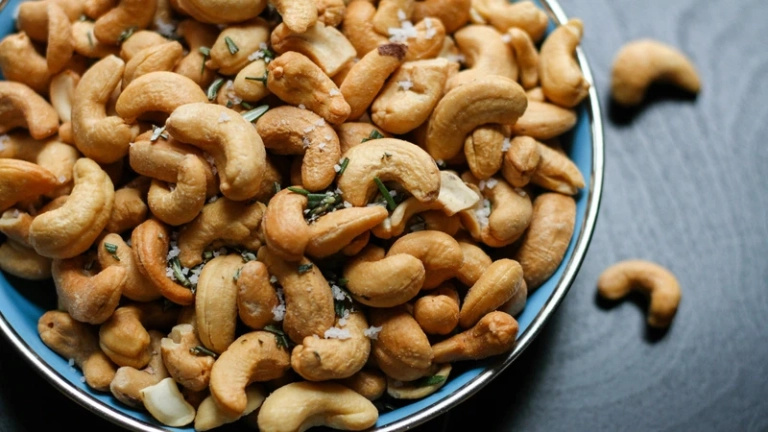In the world of nutrition, seeds and nuts stand out as tiny powerhouses packed with essential nutrients that can benefit our health in numerous ways. Despite their small size, seeds and nuts are nutritional giants, offering a wide array of vitamins, minerals, healthy fats, and other beneficial compounds. In this article, we’ll explore why seeds and nuts are good for us and why they should be included in a healthy diet.
1. Nutrient Density: Seeds and nuts are densely packed with nutrients that are vital for our overall health. They are rich sources of protein, healthy fats, fiber, vitamins, and minerals. For example, nuts like almonds, walnuts, and pistachios are excellent sources of protein and heart-healthy fats, while seeds like chia seeds, flaxseeds, and pumpkin seeds are high in fiber and essential micronutrients like magnesium, zinc, and iron.
2. Heart Health: Incorporating seeds and nuts into your diet can have a positive impact on heart health. Many seeds and nuts contain monounsaturated and polyunsaturated fats, including omega-3 and omega-6 fatty acids, which have been linked to a reduced risk of heart disease. Additionally, the fiber, antioxidants, and plant sterols found in seeds and nuts can help lower LDL (bad) cholesterol levels and improve overall heart health.
3. Weight Management: Despite their relatively high calorie content, seeds and nuts can actually aid in weight management when consumed in moderation. The protein, fiber, and healthy fats found in seeds and nuts promote satiety and can help control appetite, making them a satisfying and nutritious snack option. Including seeds and nuts in your diet may help prevent overeating and contribute to better weight management over time.
4. Brain Health: Seeds and nuts are rich in nutrients that support brain health and cognitive function. Omega-3 fatty acids, found in abundance in seeds like flaxseeds and chia seeds, are essential for brain development and function. Additionally, nuts like walnuts are particularly high in alpha-linolenic acid (ALA), a type of omega-3 fatty acid that has been associated with improved cognitive function and reduced risk of age-related cognitive decline.
5. Antioxidant Properties: Many seeds and nuts are rich in antioxidants, which are compounds that help protect cells from damage caused by free radicals. Free radicals are unstable molecules that can contribute to chronic diseases such as cancer, heart disease, and diabetes. By consuming antioxidant-rich seeds and nuts, you can help neutralize free radicals and reduce inflammation in the body, thereby supporting overall health and longevity.
6. Bone Health: Seeds and nuts are excellent sources of several nutrients that are essential for bone health, including calcium, magnesium, phosphorus, and vitamin E. These nutrients play a crucial role in maintaining strong and healthy bones, and their presence in seeds and nuts makes them valuable additions to a bone-healthy diet. Additionally, some seeds like sesame seeds are particularly rich in calcium, which is essential for maintaining bone density and preventing osteoporosis.
Six of the healthiest nuts and seeds
1. Almonds: Almonds are packed with nutrients, including protein, healthy fats, fiber, vitamin E, magnesium, and calcium. They are particularly rich in monounsaturated fats, which are beneficial for heart health.
2. Walnuts: Walnuts are an excellent source of omega-3 fatty acids, specifically alpha-linolenic acid (ALA), which has been linked to improved heart health and cognitive function. They also provide protein, fiber, magnesium, and antioxidants.
3. Chia Seeds: Chia seeds are loaded with fiber, omega-3 fatty acids, protein, and various vitamins and minerals, including calcium, magnesium, and phosphorus. They are also rich in antioxidants and can help promote hydration due to their ability to absorb water.
4. Flaxseeds: Flaxseeds are another excellent source of omega-3 fatty acids, particularly alpha-linolenic acid (ALA). They are also high in fiber, lignans, and antioxidants, which have been associated with a reduced risk of heart disease and certain types of cancer.
5. Pumpkin Seeds: Pumpkin seeds, also known as pepitas, are rich in protein, healthy fats, fiber, magnesium, zinc, and iron. They are particularly high in magnesium, which is important for bone health, muscle function, and energy production.
6. Sunflower Seeds: Sunflower seeds are a good source of protein, healthy fats, fiber, vitamin E, magnesium, and selenium. They are also rich in antioxidants, including vitamin E and phenolic compounds, which help protect cells from damage caused by free radicals.
Incorporating a variety of these nuts and seeds into your diet can provide a wide range of essential nutrients and health benefits. Whether eaten as a snack, added to salads, yogurt, or smoothies, or used as toppings for oatmeal or baked goods, these nutrient-rich nuts and seeds can be enjoyed in numerous delicious and nutritious ways.
In conclusion, seeds and nuts are nutritional powerhouses that offer a wide range of health benefits. From promoting heart health and aiding in weight management to supporting brain function and bone health, the nutrients found in seeds and nuts play vital roles in maintaining overall health and well-being. By incorporating a variety of seeds and nuts into your diet regularly, you can reap the numerous health benefits they have to offer and enjoy delicious and nutritious meals and snacks in the process.












